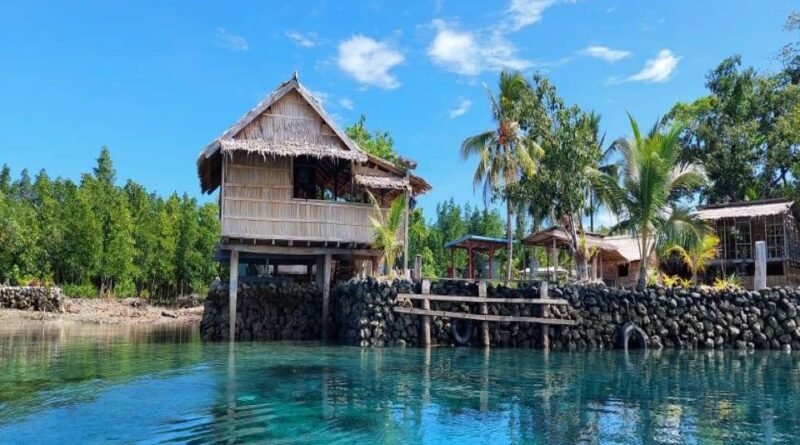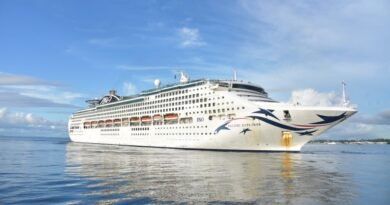Unlocking the Tourism Potential of Malaita Province
BY MIKE TUA
ALTHOUGH Tourism has the potential to create jobs, boost an inclusive economy and reduce poverty (especially in the rural tourism sector) in the Solomon Islands, it’s not necessary for Malaita province as tourism continues to be one of the struggling sectors.
The island province of Malaita has a treasure trove of tourism assets, ranging from wildlife viewing to beach tourism, and cultural to adventure tourism. Yet despite its undeniable tourism potential, its growth has been severely stunted by years of political instability and lack of action on necessary policy reforms and initiatives.
According to ecologist, Dr. John Shenk, the province of Malaita and its people have a huge and unique eco-tourism potential yet to take off here and to be exposed to the world.
“Malaita people will only work with you when they have trust and respect and I have what it takes to unlock the eco and sustainable tourism in Malaita and Solomon Islands.
“Eco-tourism is giving visitors an authentic natural, raw tourism experience where nowhere you will find in the world. You can only find this romantic peaceful tranquillity only in the Solomon Islands.

“If you are still thinking about sustainable tourism, now it’s the time as the tide is shifting.
“Malaita province has tourism operators and resource owners who want to attend eco-tourism training but time and resources are not on our side.
“Malaita province has a huge potential for adventure tourism.
“I know Malaita people, they are very good in action. They don’t just listen and sleep with information, they run with the information they have and put it into practice. That’s what is so special about Malaitans,” he said.
Dr. John had recently teamed up with Solomon Islands sustainable tourism specialist, Ender Rence to facilitate a series of workshops for tourism operators and interested individuals in Malaita province.

More than 20 participants (tourism operators and interested individuals) have benefited from the series of workshops on eco-tourism, which was conducted in Langalanga Lagoon, Malaita province.
The workshop covered a wide range of topics that includes the definition and vision of eco-tourism, the secret of tourists that ecotourism can offer, types of building materials and facilities that will attract visitors who care for the environment and culture (especially things that can add value to the environment and culture), the secrets that Solomon and Pacific have that is attracting, maintain the resort, advertising (sales and marketing), challenges of tourism in the Solomon Islands and the future of tourism in the Solomon Islands.
A workshop participant, Lesley Sanga from Aitolo village, Central Kwara’ae said the wisdom and knowledge shared by Dr. John are very useful and he hopes to make practical use of it.

Meanwhile, Dr. John is not new to the Solomon Islands, he was born, raised, and live with his parents in the country for more than 35 years.
Now retired, the ecologist now resides in Brisbane, Australia where he continues to maintain networks and contacts with friends and a few successful ecotourism operators in the country like owners of Titiru Family Eco Lodge and Bota’ala Island Dream Eco lodge in the provinces of Western and Malaita.
He said it’s an opportunity to share my knowledge and wisdom with Solomon Islanders the place I once lived and loved.
“The training, mentoring, and assessments came straight from the bottom of my heart.

“When am in the Solomons for holiday, I thought why not use this opportunity to share and add value to the eco-tourism industry of the Solomon Islands? As I believe eco or sustainable tourism is the future for the Solomon Islands.
“Logging and mining will finish one day soon but sustainable tourism will go on forever.
“That’s why I help mentor Kilo, the owner of Titiru Lodge, and owners of Bota’ala Island Resort in the Langalanga Lagoon.
“I want to see sustainable tourism win in the Solomon Islands.
“However, the feedback from the training was overwhelming. We have lots of interest from other tourism operators from Kwara’ae who are very keen to learn,” he said.

As an ecologist, Dr. John has over the years switched to adopting an eco-friendly and greener lifestyle in his home in Brisbane, Australia.
“I live in Australia and Back home I live in an eco-friendly way. All my electrical power sources are generated by solar.
“I pumped water from a creek beside my house to supply my house.
“I plant slippery cabbage, my toilet is compost, and I make my garden.
“Never preach anything when you do not live by your words. Leading by example is the way to live.
“Living by example will live a lifelong impression on the future generation,” he said.
Meanwhile, local workshop facilitator and sustainable tourism specialist, Ender Rence who jointly initiated the workshop with Dr. John told TOURISM MEDIA that the primary objective to establish the eco-tourism workshop is to boost the eco-tourism potential of Malaita province.
“Dr. John and I have discussed ideas to help address and revive the tourism needs and potential of Malaita province.
“We want to make sure that eco and sustainable tourism develops in Malaita and other parts of the country since tourism can undoubtedly become a significant contributor to the country’s economic recovery.

“We hope that it’s just the beginning of many good things to come for the people of Malaita province,” she said.
She said both of them are looking forward to the launch of an eco-tourism checklist book.
“The book will encourage locals to own and operate our own eco-tourism business in their natural settings,” she said.
Ender is also a strong advocator of sustainable ecotourism in rural settings and more recently she described her plans to support her tribe in Langalanga Lagoon to establish an eco-tourism and conservation association to help develop and promote ecotourism and sustainable tourist destination in that particular region of Malaita province.

“Recently, I consulted the Fouboso tribe in Langalanga Lagoon and we want to take the lead to start our eco-tourism and conservation association.
“We believed that over the years, Mother Nature has taken care of us, and yet we do a lot of negative and cruel things against her such as dynamite fishing, overfishing, and destroying our natural resources in the Langalanga Lagoon.
“We want to conserve the environment, and improve the well-being of our tribe since our lagoon home has an ecosystem and is rich in biodiversity,” she said.



